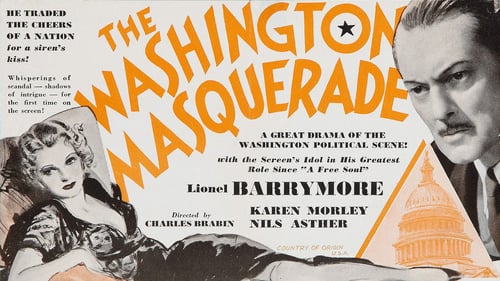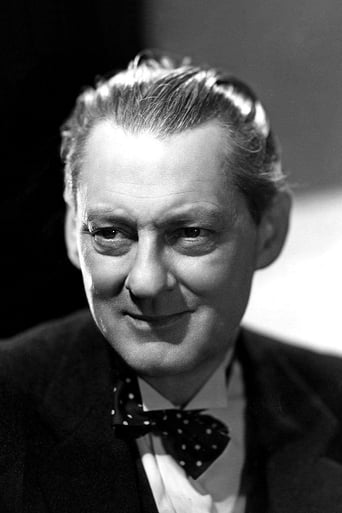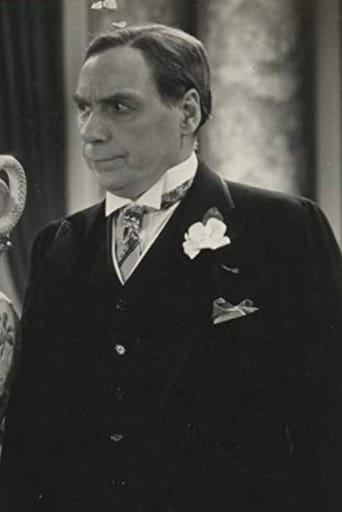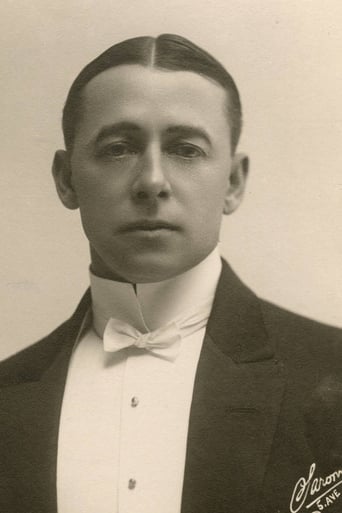Teringer
An Exercise In Nonsense
DipitySkillful
an ambitious but ultimately ineffective debut endeavor.
Raymond Sierra
The film may be flawed, but its message is not.
Skyler
Great movie. Not sure what people expected but I found it highly entertaining.
audiemurph
If you are watching the great Lionel Barrymore, then it is not possible for you to be wasting your time. "Washington Masquerade" can be considered a showcase for Barrymore, and he delivers a wide ranging performance for our entertainment. However, I think the most fascinating way to take in this film is to focus on Barrymore's famously arthritic hands. Like a tic that cannot be controlled, these hands never stop moving, restlessly in continuous motion throughout this film. I do not know if this was a conscious decision on the director's part, but those enormous hands, with their lengthy fingers, keep moving, moving, and moving; now sweeping his hair back, now smoothing out his clothes, now grabbing on to his lapels, now wiping or covering his face and brow, the hands are the true stars of this film.Brother John Barrymore may have been known as The Profile, but Lionel should be known as The Voice, the distinctive pitch and tone Lionel's alone. The final scene, in which he delivers a scorching speech to a committee of Congressmen, may be hokey and dated, but it's still an electric performance by the great one.
lshelhamer
This story of the travails or a new Senator in Washington obviously brings to mind the later "Mr. Smith Goes to Washington". Both men are idealistic freshman Senators, who's first name happens to be Jefferson. However, James Stewart is a young neophyte, while here Lionel Barrymore is a mature experienced lawyer. One sticks to his idealism despite being pressured by back room power brokers, while the other succumbs to the blandishments of sex and money.The plot gives Barrymore ample opportunity to emote through several speeches and scenes. But the real find here is Karen Morley. She starts out as a Perle Mesta-type Washington hostess, while also being in the employ of lobbyists. Later she marries Barrymore, and for much of the mid portion of the film, one can almost believe she is actually falling in love with her much older husband and might eventually switch sides. However, towards the end she shows her true colors.The final scenes seem hurried and the ending contrived. But the film is still worthwhile both for Ms. Morley acting and as a comparison to the later James Stewart picture.
Alonzo Church
Lionel Barrymore, crusading attorney from the sticks, takes on the bosses of his home state and wins election as Senator. This movie asks the question: "Can an honest man go to Washington and keep his integrity intact?" Since this is the early 30s (and pre Code), the answer to the question manages to be both downbeat and unrealistic. Also, the politics of our hero really is straight Huey P. Long (with a touch of Perry Mason). This makes watching this film at times a touch unpleasant. The railing against bosses and big corporate interests is both shrill and unspecific. But the moral smugness throughout is unmistakable.The interesting thing here is the performance by Lionel Barrymore, which is far better than his norm. The character here feels real, even when he is spouting the populist nonsense of the day. Perhaps Barrymore intends him to seem a bit of a fraud? Lionel even gets a romantic scene with the Washington hostess who is trying to seduce him. (Bigger surprise -- the scene is actually sexy, and Lionel is credible in it.) Watch the film for the surprise Barrymore performance, and also for a sense that there were political films before Mr. Smith Goes To Washington. But not for the rather blah plot.
dugfowlr-1
I happened to catch this film just today on Turner Classics, and expected to see Lionel Barrymore perform his usual job of overacting in this 1932 release. Surprisingly, I thought he was perfectly in character as a reformer elected to the U.S. Senate, finding himself entrapped in what still seems common today of becoming a captive of either ego or the compromising pressures of constantly needing funds for reelection. In this case, being a lonely widower, he was trapped by an ambitious and unfaithful woman who married him and then led him to resign his seat for monetary gain in order to keep her. In the end, he redeems himself before an investigative hearing by being brutally honest about his own failings and that of the system.






